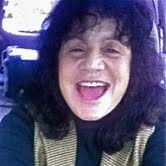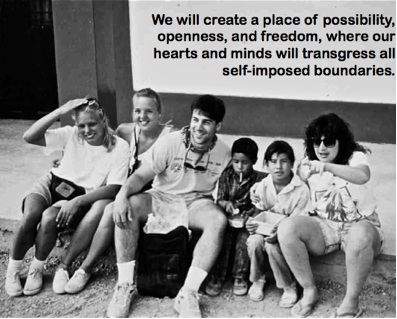 This year Powerful Learning Practice is hosting a new type of conference. At PLP Live – Inspire. Collaborate. Shift. participants will find:
This year Powerful Learning Practice is hosting a new type of conference. At PLP Live – Inspire. Collaborate. Shift. participants will find:
* Inspiration from top names in education such as John Seely Brown, Suzie Boss, Darren Cambridge, Bruce Dixon, Will Richardson, Sheryl Nussbaum-Beach, Jackie Gerstein, Jane Krauss, Renee Moore, and more.
*Active, creative collaboration with educators and educational leaders from across the globe to solve issues from the classroom to policy makers.
*Most important, shift: why we need it, how to make it happen in your own teaching, your classroom, your school, your local community, how becoming a connected educator accelerates the shift, and how to inspire others to ride the wave of change with you
*Plus a one-of-a-kind opportunity: Lunch ‘n’ learn with the speakers – ‘Mingle and munch’ in casual conversation with the keynote speakers and breakout session facilitators. Ask your questions. Share your ideas. Discuss the issues. See the agenda for complete details!
We’d like to introduce our keynote speakers, one by one, and so we’ve come up with six questions for each of them. These questions will give you a little peek into who they are, the message they’ll bring to the conference, and why you won’t want to miss meeting them at PLP Live!
Meet Jackie Gerstein, PLP Live – Inspire. Collaborate. Shift. Keynote Speaker
What do you see as the major shift needed in professional learning environments these days?
Connected Educator Month in August reinforced to me that the days of sitting in all day mandatory in-services are so 20th century. Educators, in this era of learning, have the opportunity to self direct their professional development based on their own needs, desires, and interests. Professional learning should be approached as developing a set of “how-to” skills in order to participate in one’s own self-directed learning. . . skills such as ability to identify areas of needed enhancement and development, the establishment of Personal Learning Networks (PLN), and the ability to locate and engage in networked learning opportunities. The chain-reaction benefit of this shift is that educators will then be able to bring this skill set into their own teaching/learning environments; and be able to model and teach their own students how to direct their own learning experiences.
Why did you agree to be a keynote speaker at PLP Live 2012?
There are several reasons I decided to speak at PLP Live. The first is because of the PLP organization and network. As I said when asked to be on the advisory board, the name, Powerful Learning Practice, was a motivator in and by itself. Most importantly, though, the beliefs that drive PLP are closely aligned with my own. So being apart this community is a privilege and an honor.
Second the conference structure itself is going to be quite exciting. It is going to be a fast, furious, interactive conference filled with great rapid fire keynotes, interactive and engaging lunch chats and afternoon sessions with a group of educators who are passionate about teaching and learning.
Can you tell us a little bit about the core message that you will deliver at the conference?
Historically, teachers teach the way they were taught. I want to change this. I am on a mission to assist and encourage educators to design learning experiences they wished they had when they were elementary, secondary, undergraduate students.
During my rapid-fire PLP Live keynote, I will be offering (as in an invitation for consumption) what I call little “t” truths or sound bites of wisdom about what I believe learning should be in this era of education – what education should look like, what it should sound like, what it should feel like to the learner.
The core themes about education reform and revolution that I present to my college classes, conference audiences, and via my social networks include:
How would you describe your approach and/or belief when it comes to “engaging” an audience?
I work to engage my audiences (who I view and “classify” as co-learners) on a number of levels: cognitively, emotionally, viscerally. My belief, as I tell my audiences and students, is that if they don’t think or do something differently due to my presentation, then I’ve failed them.
For this particular presentation, that is designed to be more didactic and rapid-fire, I plan to engage my audience through a series of questions, a means to take a self-inventory to discover possible discrepancies between current and desired teaching practices AND the motivation to close these discrepancies. I am hoping to challenge my PLP Live audience, as I do all my audiences, to be and live the change they want to see in the world.
Tell us a little about what (or who) inspires you?
My Personal/Professional Learning Network inspires me every single day. I spend a bit of everyday searching through and connecting with others via my social networks – Twitter and Facebook. I find out about my colleagues’ classrooms, students, instructional strategies, philosophical beliefs, and efforts for educational reform. I once had very little hope for the public education systems – seeing them more as breaking the spirits of children (I use this clip from Seabiscuit as a metaphor of what I believe happens to many kids within institutionalized education) than as venues for assisting in developing the potential of all students.
As Sheryl Nussanbaum-Beach has stated, Twitter has permitted educators to come out of their silos of isolation. Because of my PLN, I now have hope that we, as a community of networked educational reformers, will create a place of possibility, openness, and freedom, where our hearts and minds will transgress all self-imposed boundaries.
Learning is a place where paradise can be created. The classroom with all its limitations remains a location of possibility. In that field of possibility we have the opportunity to labour for freedom, to demand of ourselves and our comrades, an openness of mind and heart that allows us to face reality even as we collectively imagine ways to move beyond boundaries, to transgress. This is education as the practice of freedom. (hooks 1994: 207)
Where can participants find you online?
I believe that one of the roles and responsibilities of the 21st century educators is to share resources, ideas, and instructional strategies with other educators. As such I can be found on:
Christen Dodd
Latest posts by Christen Dodd (see all)
- Breaking Hyflex & Remote Learning Visual Barriers - October 15, 2020
- Is Your Lifeboat Secure? - September 26, 2020
- Going Into the Unknown - August 17, 2020



